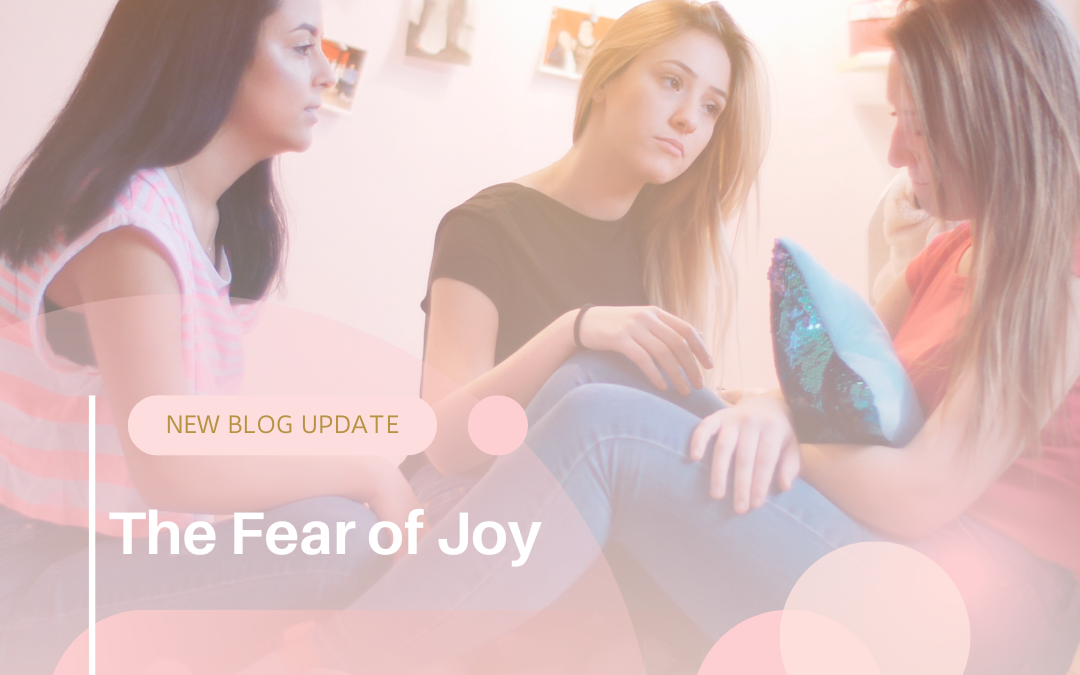For many people, joy is a welcome emotion—something to celebrate, savor, and seek.
But for trauma survivors, joy can feel… complicated.
Uncomfortable.
Even threatening.
If you’ve ever pulled back from happiness, felt anxiety during moments of peace, or waited for something bad to happen right after something good—you’re not alone. This is a real and often misunderstood experience: the fear of joy.
Why Would Someone Fear Joy?
It might sound strange at first. Why would anyone be afraid to feel good?
But for those who’ve experienced trauma—especially chronic, unpredictable, or relational trauma—the nervous system becomes wired to anticipate danger. Even when things are calm or joyful, the body may stay on alert, thinking:
“This is too good to be true.”
“Something bad always follows the good.”
“Don’t relax—you’ll get hurt again.”
So instead of sinking into joy, the brain treats it like a setup. A trap. A moment of vulnerability that could lead to pain.
This Is Called Foreboding Joy
Researcher Brené Brown coined the term foreboding joy to describe this phenomenon:
“It’s when joy becomes so overwhelming that we immediately start to imagine the worst-case scenario.”
It’s the parent who stares lovingly at their sleeping child, then instantly imagines something terrible happening.
The person in a happy relationship who feels the urge to self-sabotage.
The trauma survivor who experiences peace and instantly becomes anxious, scanning for what might go wrong.
It’s not a lack of gratitude—it’s a deeply ingrained survival response.
The Nervous System’s Role
After trauma, your nervous system becomes hypersensitive to threat. This is called hypervigilance.
Even when danger isn’t present, your body might:
-
Tighten up when you feel joy
-
Distrust calm or stillness
-
Prepare for loss in moments of connection
-
Feel triggered by “too much” goodness
Your system isn’t trying to ruin your life—it’s trying to protect you. It learned that good things were often followed by harm, so now it sees joy as risky.
Signs You May Be Struggling with the Fear of Joy
-
You downplay or dismiss good things in your life
-
You feel anxious during or after positive experiences
-
You push people away when things are going well
-
You feel undeserving of peace, love, or happiness
-
You sabotage success or retreat when things start improving
-
You wait for “the other shoe to drop”
If any of this sounds familiar, you’re not broken. You’re responding in a way that once made sense—and may have even kept you safe.
So… How Do We Heal?
1. Name It Without Shame
The first step is noticing it. Name it gently: “This is foreboding joy. My body is protecting me from something that isn’t actually dangerous anymore.”
2. Practice Tiny Moments of Joy
You don’t have to force yourself into full-blown happiness. Start with short, safe doses of joy—laughter with a friend, warmth from the sun, a favorite song. Let your nervous system learn that joy doesn’t have to lead to danger.
3. Ground Yourself in the Present
Use grounding techniques when anxiety creeps in during good moments. Deep breathing, naming five things you see, or placing a hand on your heart can help bring your body back to now.
4. Explore With a Therapist
A trauma-informed therapist can help unpack where this fear comes from and support you in gently expanding your “window of tolerance” for joy, peace, and connection.
5. Rewire the Story
Start to rewrite the narrative: “It’s safe to feel good. I can let this in. I deserve this.”
Even if it feels unnatural at first, over time, repetition rewires the brain.
Final Thoughts: You Deserve to Feel Good
Healing doesn’t always mean erasing fear. It means learning to hold it with care—while still allowing yourself to feel the full range of human emotion, including joy.
If joy feels scary, it doesn’t mean you’re ungrateful or unhealed.
It means your body remembers pain—and it’s trying to protect you.
But protection doesn’t always mean avoidance.
Sometimes healing is letting yourself feel joy and fear at the same time.
And little by little, your system can learn that it’s safe to feel good again.


Recent Comments